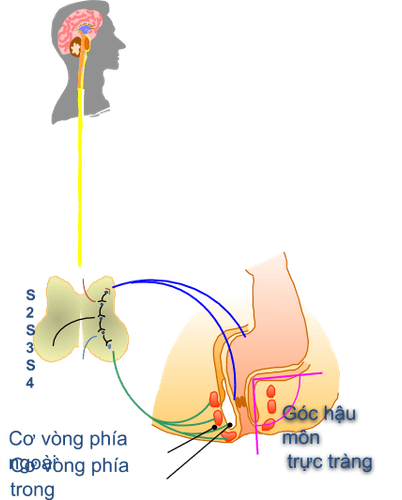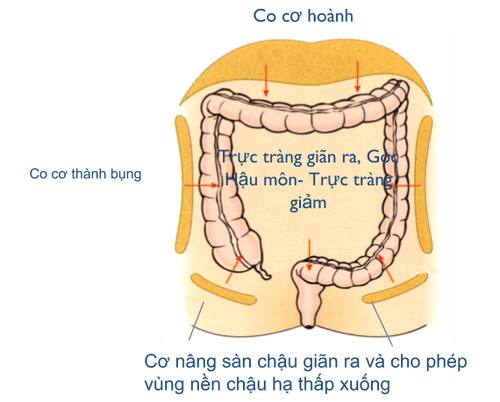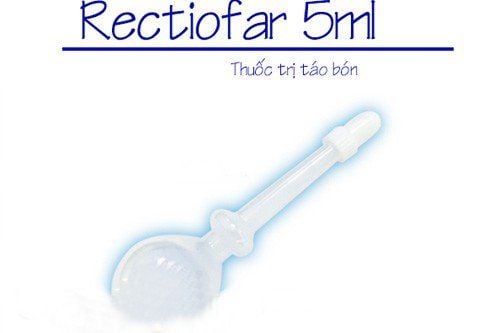This is an automatically translated article.
Posted by Master, Doctor Vu Duy Chinh - High-Tech Unit for Treatment of Cerebral Palsy and Autism - Vinmec Times City International Hospital.In children, constipation is a very common condition, a warning sign of an unhealthy digestive system, possibly due to a lack of water or a lack of fiber in the diet...
Constipation is caused by many causes, from functional constipation to physical pathological causes (then constipation is only a consequence of the disease). result of a certain disease of the body). In this article, we talk about functional constipation. Because these are the causes of living habits, unreasonable diet... cause, if detected and adjusted early, the situation of constipation is improved very well, but without intervention and timely adjustment, the mechanical causes cause the problem of decreased defecation reflex in children later, which is very difficult to treat.
1. Causes of functional constipation
Causes of functional constipation may include:Children who refuse to have a bowel movement are the most common cause. The longer the child holds the stool, the longer the stool stays in the intestines and the larger it becomes, the more difficult it is for the child to pass the stool, resulting in chronic constipation. Newborns are often constipated if they are introduced to solid foods suddenly, especially in babies who are eating solid foods for the first time. Constipation can also occur when a baby is weaned from breast milk. This is because weaning sometimes causes babies to lose their water supply. Different protein composition in formula can be the cause of constipation in babies. Infants who are formula fed in large amounts and are constipated often have hard, green stools. Constipation is also common in children who are dehydrated and dehydrated, when the body will absorb liquid from anywhere in the body from food, drink, even stool, which inadvertently causes stool to become solid and dry. In addition, a diet lacking in fiber also causes constipation. Fiber from vegetables and fruits contributes to increasing stool volume, making stools softer.

2. Recognizing the signs that your child is constipated
In medicine, constipation is usually defined as less than three bowel movements per week. However, constipation is also identified in people who pass several times a day, but have small or hard stools. Researchers often use the Rome III criteria to define constipation. Constipation must include two or more of the following:Difficulty defecation for at least 1/4 of the time stools are small, lumpy or hard at least 1/4 of the times Feeling of incomplete urination on at least one-quarter of bowel movements Feeling of anal obstruction for at least one-quarter of bowel movements Manual or medical intervention at least one-quarter of times bowel movements Less than three bowel movements per week If constipation persists, worsening without treatment, it can easily lead to hemorrhoids or other dangerous diseases related to the digestive tract.
3. The process of defecation and reduction of defecation reflex due to constipation
In the normal person, the process of defecation begins when stool is pushed to the rectum by peristalsis. The fecal mass located in the rectal ball will stretch the pubo-rectal muscle as well as the rectal wall, stimulating and prompting the body to pass stool. Intentional relaxation of the external anal sphincter and the puborectal muscle straightens the anus, allowing stool to pass. Stool is expelled through a combination of continuous peristalsis and increased intra-abdominal pressure through contraction of the abdominal wall muscles, diaphragm, and levator anal muscles combined with breath holding (Valsava).Reflex activities appear at the onset of bowel movements:
Peristaltic contractions push stool through the colon to the rectum Gastro-intestinal reflex: Colonic activity increases 30-60 minutes after eating. Recto-rectum reflex: when the upper rectal part of the stool is contracted and the bowel wall below is dilated, the stool continues to descend. Recto-anal reflex: Occurs when stool stretches the rectum and the internal anal sphincter relaxes, triggering conscious stooling.


The process of prolonged functional constipation will make the child afraid of going to the toilet because of anal pain, so there will be a phenomenon of fasting. So the drier and harder the stool, the larger the size of the compressed faeces, the colon will adapt to store stool, so it will be dilated. The gradual dilatation of the rectum will make the child adapt gradually, the perception of the rectal wall with the presence of stool mass will decrease, making the child gradually lose the feeling of needing to have a bowel movement, which is the phenomenon of decreased bowel reflex. convenient.
At Vinmec International General Hospital, we have met patients who came to the clinic when the constipation process lasted for 3 years, 5 years... and the colon's adaptation to the patient's level 7-10 go out once a day. For such a patient, going out will be very difficult, and will be a great fear.
4. Diagnostic exploratory method
To perform exploratory, diagnostic evaluation of the cause of constipation due to decreased defecation reflex, the patient should perform anorectal manometry and defecation reflex assessment. Patients who come to the examination will be cleaned of stool in the colon with drugs and conduct exploratory catheterization. This is a minimally invasive procedure and poses almost no risk to the patient.From assessing the anorectal pressure and evaluating the defecation reflex, the doctor will find out the cause of the patient's constipation and from there have the appropriate method and treatment plan.
5. Methods of treating constipation due to decreased defecation reflex

Depending on the specific clinical case, the patient may be assigned to combine treatment with bio-feedback so that the defecation process takes place according to the normal physiological mechanism to help the patient. Going out is easier.
For examination and treatment consultation with a specialist, make an appointment and contact: Ths.Bs. Vu Duy Chinh - Regenerative Medicine Clinic - Vinmec Times City International General Hospital. Department administrative phone number: 02439743556, ext: 3083
SEE ALSO:
Instructions for taking care of children with constipation Steps to diagnose and treat persistent constipation in babies Constipated babies What mothers should eat ?
Please dial HOTLINE for more information or register for an appointment HERE. Download MyVinmec app to make appointments faster and to manage your bookings easily.














